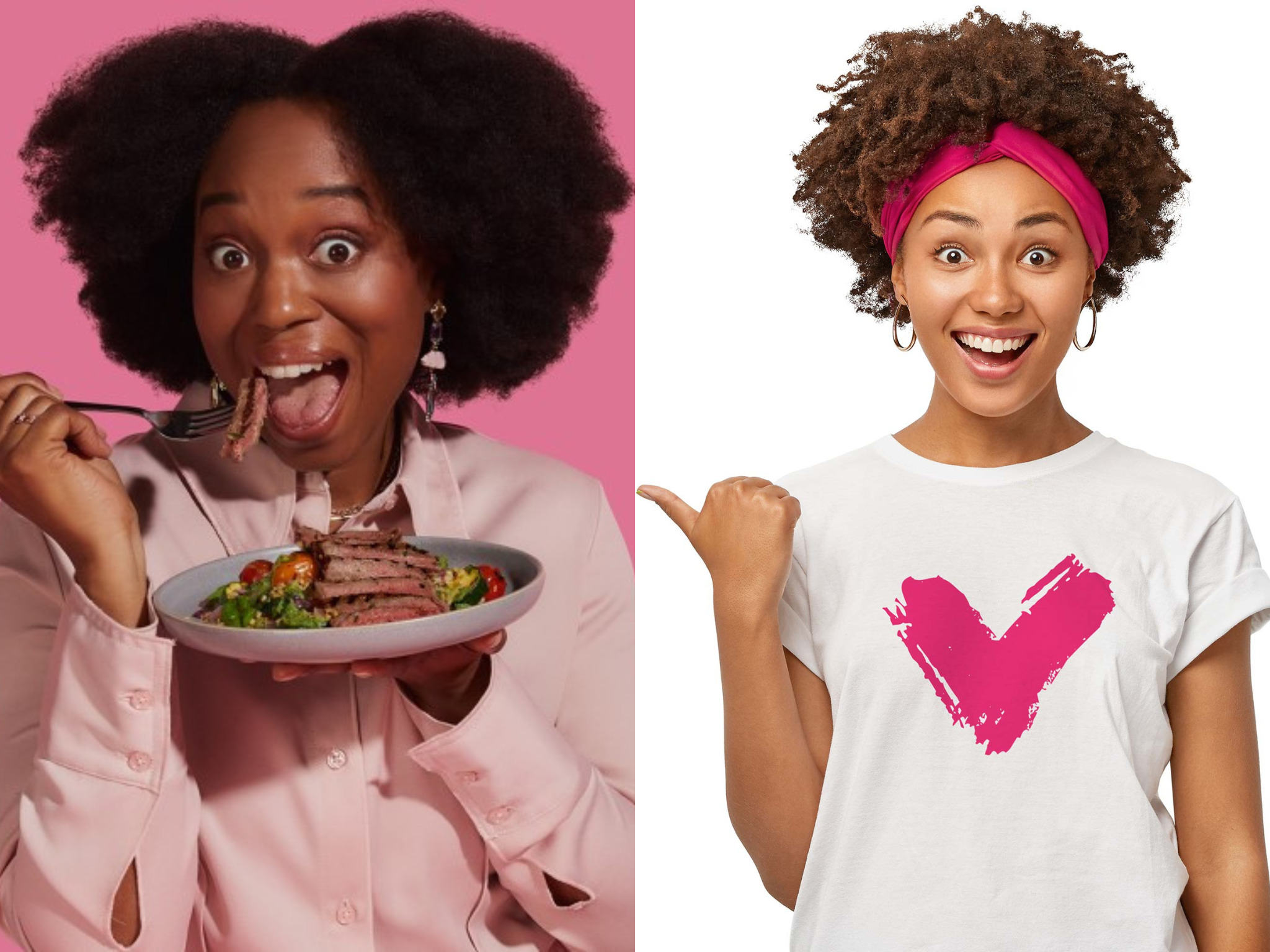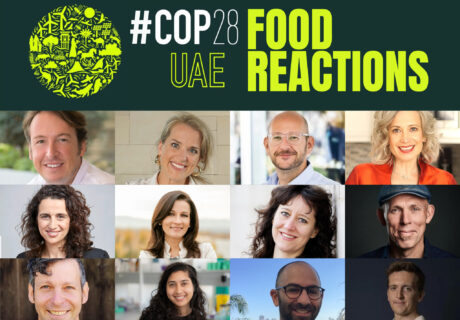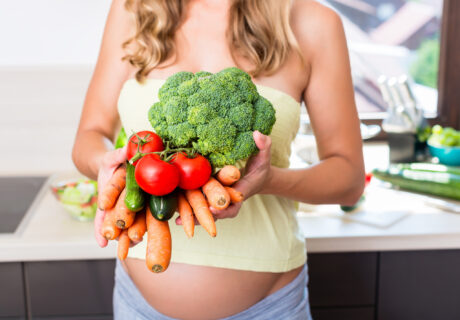6 Mins Read
As the UK eats less meat and dairy than ever before, the Agriculture and Horticulture Development Board (AHDB) is launching an ad campaign promoting beef, lamb and dairy in January to rival the increasingly popular Veganuary, with three TV commercials as well as newspaper, magazine and online adverts.
“Did you know that beef, pork, lamb and dairy are natural sources of vitamin B12, an essential vitamin not naturally present in a vegan diet?”
AHDB, the UK farmer-funded livestock association, just couldn’t resist. After years of campaigning to “protect long-term consumer attitudes towards naturally produced ‘British’ meat and dairy”, it is relaunching its We Eat Balanced campaign, except with the slightly different Let’s Eat Balanced moniker.
Starting on January 1, the livestock body’s new “bold and exciting” campaign is designed to highlight locally produced beef, lamb and dairy, with the campaign’s ‘This’ and ‘That’ theme hoping to encourage consumers to “adopt a sustainable, healthy and nutritiously balanced diet”.
If the timing seems curious, make no mistake: this was deliberately planned to coincide with Veganuary, the monthlong campaign asking people to go vegan in January, as a driver of changing dietary habits to facilitate a permanent transition to a plant-based diet.
A Veganuary challenger?
AHDB says the theme reflects how “this rain and grass” produces “that delicious beef, lamb, milk and cheese”, which provides “this vitamin B12”, which helps with “that fatigue”. Indeed, the focus on this vitamin group is high, with the industry body hoping to highlight these foods as natural protein and B12 sources.
The campaign will see three TV commercials – one each for beef, lamb and dairy – voiced by British comedian Richard Ayoade (The IT Crowd). These will feature on cinema screens for the first time, and will be complemented with ads in newspapers, magazines and on social media. Additionally, AHDB has partnered with Tasty UK (the culinary content arm of BuzzFeed) to create ‘Balanced Bites’ videos to encourage younger audiences (aged 18-25) to eat “balanced dishes using British red meat and dairy”.
“Let’s Eat Balanced aims to capture consumers at every touchpoint, with its vibrant colours and streamlined design catering to a broad demographic, especially appealing to the younger Gen Z audience,” said Carrie McDermid, head of domestic marketing at AHDB. This strategy could be born out of the fact that more and more Gen Zers are shying away from meat. A December 2022 survey revealed that 43% of British Gen Zers didn’t plan to meat this year, accounting for the demographic with the highest share.
While the announcement doesn’t feature any reference to veganism, one click on its website displays a homepage that features the aforementioned dig at vegan diets and vitamin B12. The campaign directly targets Veganuary, which was founded in the UK in 2014 but has become a global movement since, with a record-breaking number of participants each year.
Toni Vernelli, Veganuary’s head of communication, also feels that AHDB’s campaign has been timed to “try and counteract” the vegan challenge’s impact on meat and dairy sales. But she’s not worried about it. “AHDB has launched a pro-meat and dairy campaign every January for the past few years and it has not received much mainstream attention or affected Veganuary in any way,” she tells Green Queen.
January 2023 saw over 700,000 people globally pledge to vegan for the month, and Vernelli confirms that the campaign expects more participants than ever before in 2024, with consumers becoming more concerned about the environmental, health and animal welfare impacts of their eating habits.
Within the UK, meat and dairy consumption are at their lowest since records began nearly 50 years ago, with cost of living and inflation playing a major role. But groups like AHDB would be quick to note that produce intake is lower than in previous years too, while cheese-eating is at a high.
Busting the myth
AHDB’s We Eat Balanced campaign does make a pretty bold statement: “British meat and dairy are also amongst the most sustainable in the world.” Expanding on this, the group cited government data showing how transport and energy emissions are higher than livestock in the UK, while the animal agriculture industry accounts for 7% of national GHG emissions.
“But sustainability isn’t just about carbon, there [are] many other things to consider,” it points out, continuing with some land and water use statistics that included research that the group jointly conducted with others. However, the AHDB conveniently leaves out any mention of methane, a gas 20 times more potent than carbon and with more immediate implications for the planet.
The same government report it cites for carbon emissions figures revealed that agriculture accounted for 48% of the UK’s total methane emissions – and while that figure has fallen by 15% from a 1990 baseline, it has largely been at the same level since 2009. Methane is a byproduct of enteric fermentation from livestock farming, and the decomposition of manure under anaerobic conditions.
Colin Bateman, beef and lamb sector council chair at AHDB, said: “The Let’s Eat Balanced campaign does not just deliver vital information to consumers about maintaining a nutritious and tasty diet. It also highlights the efforts of farmers dedicated to welfare and sustainable food production.” But an investigation has previously found that the UK has nearly 800 livestock mega-farms, a far cry from the welfare standards Bateman is hoping to promote. You almost can’t blame him for making claims like these though, as the industry has gotten away with it time and again.
Only one in 300 complaints about animal welfare at UK farms actually led to prosecution between 2018-22, with half of the accused not even inspected, according to a report by two animal welfare charities. And in 2021, AHDB was cleared of wrongdoing after complaints from animal rights groups about its greenwashing claims were dismissed by the UK’s Advertising Standards Agency. It’s stuff like this why such organisations probably don’t even need help from the country’s Green Claims Code and its six-point checklist for validating environmental claims.
Finally, this idea of British meat and dairy being better is not reflective of the wider argument. Farm and land use emissions from producing these animal foods are the main culprits – transportation makes up only a fraction of the total. Analysis by Our World in Data shows how buying imported beef from Central America in the UK versus buying local makes barely any difference. Plus, a 2022 report by the WWF asserted that UK farmers must reduce their meat and dairy production by a third in the next decade to meet climate goals.
“The science on climate change is now indisputable, we must reduce the amount of meat and dairy we consume and the general public is taking this on board more and more every year,” notes Vernelli. “There is no going back from here, try as the meat and dairy industries might to counter the shift.”
So, will AHDB’s new programming cut through to the 72% of Brits whose food decisions are affected by sustainability, or will Veganuary take the cake? Roll on, January.
The post Let’s Eat Balanced?: UK Livestock Industry To Broadcast TV Ads Promoting Beef, Dairy & Lamb During Veganuary appeared first on Green Queen.





